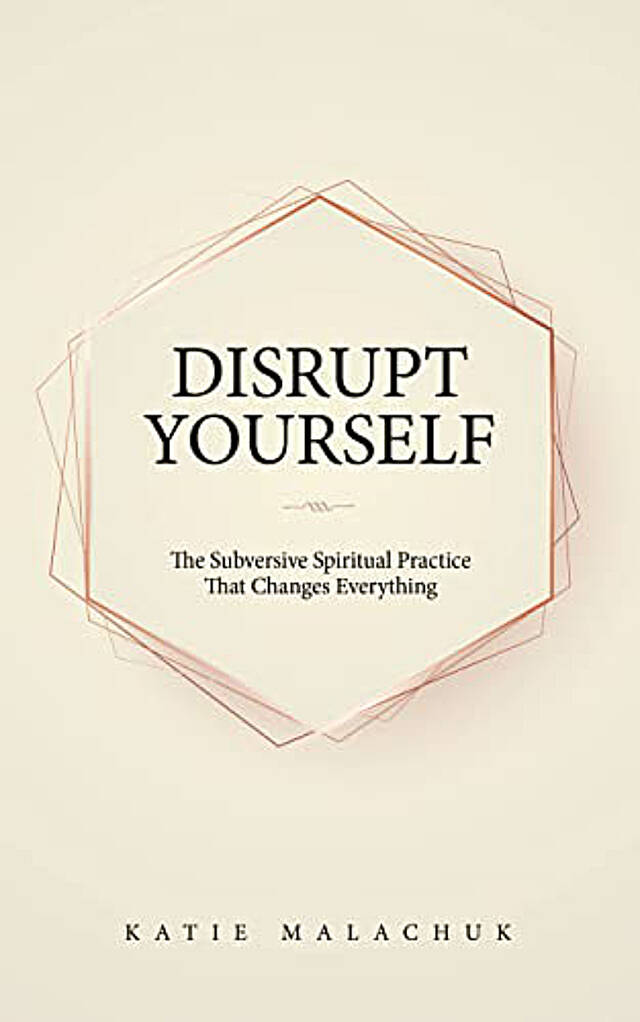Recently, I read a very interesting book: “Disrupt Yourself,” by Katie Malachuk. It’s on something of an arcane topic — the relationship between ethical behavior and self-awareness, or what we have come to call mindfulness.
I never really thought about how the way we live affects our self-awareness. I always thought that it was the other way around — self-awareness engenders ethical behavior. Malachuk grew up on the East Coast, from a highly intellectual lineage. She earned degrees at Harvard and Stanford, but decided, after all of that, to become a Buddhist chaplin. She shares her own journey with the reader, which brings her ideas to life.
She points out that we have a multitude of habits that keep us from fully experiencing ourselves in the present moment. Many of these habits help us escape from our anxiety about the uncertainty of life, fear of loss, emotional distress, or just plain boredom. These habits can include the use of drugs, alcohol, caffeine, binging on Netflix, playing video games, continually checking our cell phone for texts and social media, material accumulation, work, buying stuff, eating — there’s a long list of activities that draw us away from simply feeling our feelings, accepting ourselves as we are, without judgment.
She challenges us to engage in experiments that disrupt our ordinary flow of actions and enable us to have a different experience of ourselves. One suggestion is to make a list of all the things we do when we’re bored, anxious, lonely, tired, angry, or sad. How do we cope with these uncomfortable mental states? How do we distract ourselves when we’re distressed? What do we do when were lonely? Tired? Bored? What do we do to make ourselves feel better? She recommends taking a pause to notice our experience, and then choose whether to seek out distraction.
I decided to experiment with this disruption — and so I made my inventory of distractions. Caffeine when I’m tired. Wine on the weekends. Netflix binges from time to time. And so, I cut back on my caffeine consumption to one cup of coffee in the morning, with the plan to cut it out completely, cut out wine entirely, and stopped watching more than one episode on Netflix. I discovered, to my surprise, that it was easy and that I didn’t need as much caffeine as I thought. I didn’t miss alcohol at all. Without engaging in those distractions, I became more aware of the ebb and flow of my energy and my mood. It’s been interesting.
So why disrupt our habitual ways of coping with discomfort? Why take a moment of pause before we reach for our cell phone? Or grab a cup of coffee? Or pour a glass of wine? Malachuk writes: “Starting to worry, opening the app, reaching for the remote, we can pause … and simply notice what’s happening physically and mentally. With gentle allowance, we observe the tightness in our chest, rapid heartbeat, sinking sensation in the stomach, speedy thoughts, spacey confusion, what is going on. We notice without fixing. When we try to fix the edgy energy by covering it with habitual distractions, it sticks around, stamping its feet for attention. Under the warm sunshine of nonjudgmental awareness, body and mind settle down and open up.”
Human life has always been riddled with uncertainty and potential threat. This reality evokes anxiety. Modern life can engender boredom, loneliness, or just feeling plain overwhelmed. Can we learn to greet these feelings and allow them to find their own resting place? Can we learn how to settle into ourselves without running away?
And when we do open ourselves to our inner landscape, what do we learn? It’s a worthwhile experiment.
Paul Schoenfeld is a clinical psychologist at The Everett Clinic. His Family Talk blog can be found at www. everettclinic.com/ healthwellness-library.html.
Talk to us
> Give us your news tips.
> Send us a letter to the editor.
> More Herald contact information.

























